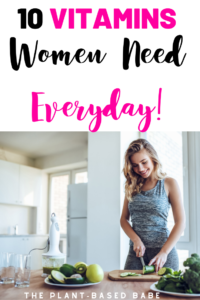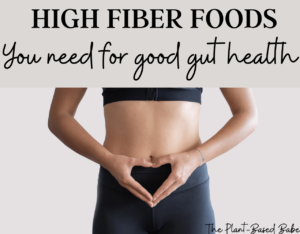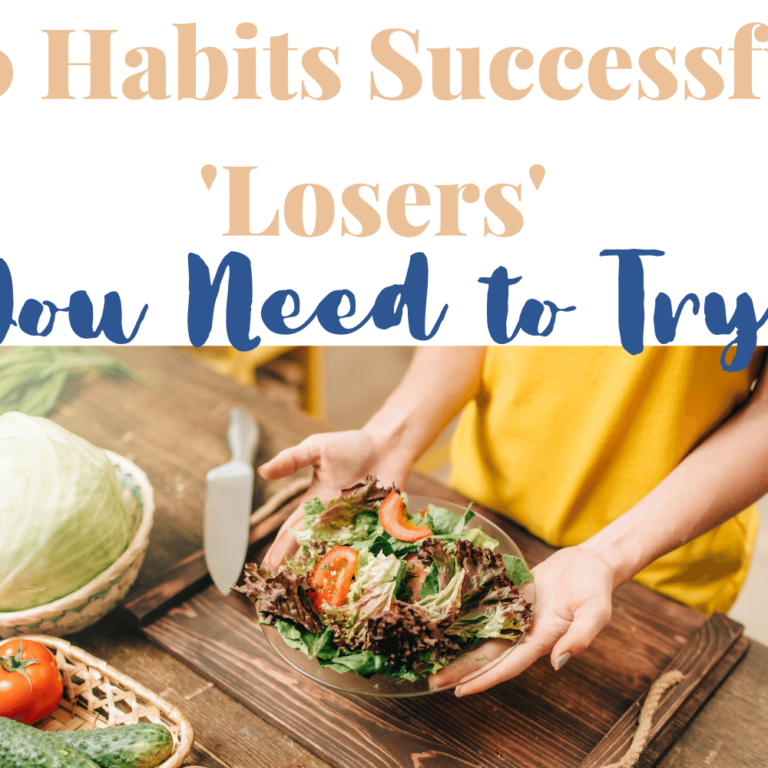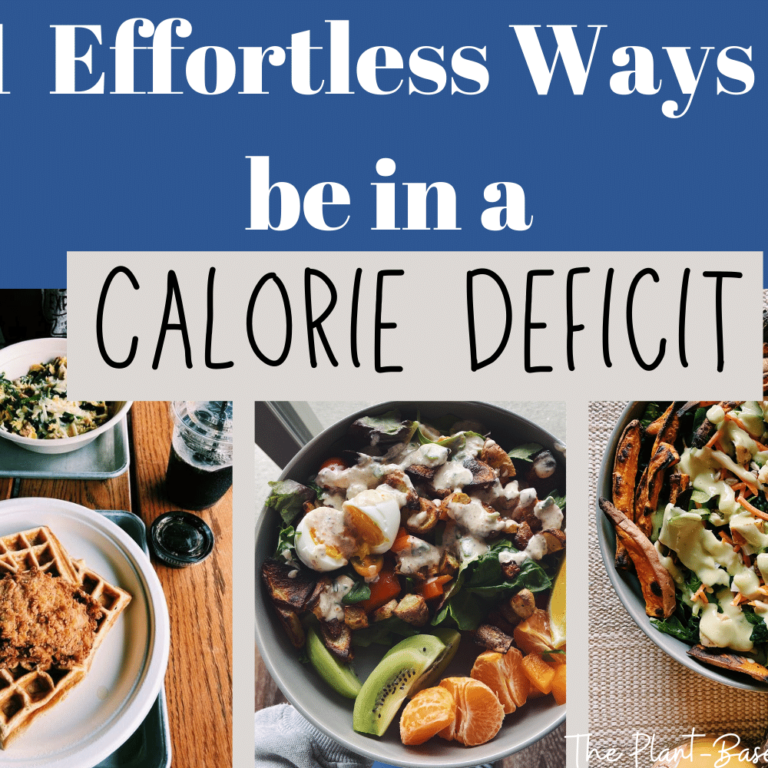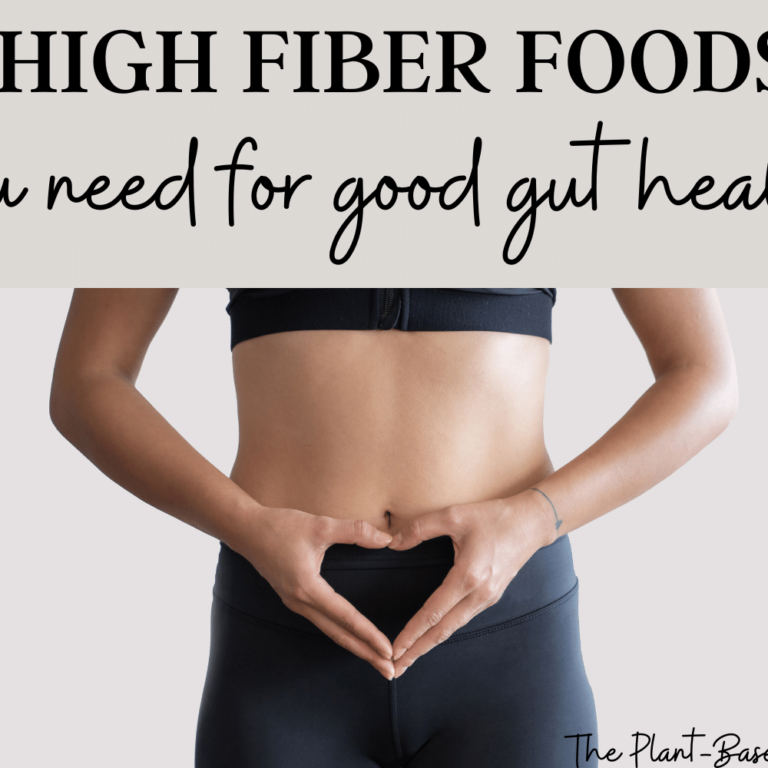HI BABES
We have all heard of antioxidants before but what does that really mean? I won’t get in too much detail about this topic because it is quite complex. I learned about this in school and feel it is appropriate during this time to share. Let’s go ahead and go over this. I also want to note that, these facts are found in this cited textbook here:
Thompson, J., & Manore, M. (2018). Nutrition: an applied approach. New York, NY: Pearson.
RELATED: 10 Vitamins Women Need Daily
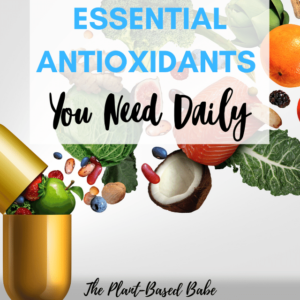
Okay, let’s begin with defining what an antioxidant is.
Our cells need to be protected from damage to foreign substances like tobacco smoke, and other ‘free radicals’. So what happens is, we need these antioxidants to help diminish or ‘oxidize’ these free radicals that can enter the cells and damage them. If our cells continually get damaged or have constant free radicals coming in, it can become destabilized. When it becomes unstabilized, our immune system can become compromised as it is more vulnerable.
So these essential micronutrients protect our bodies from getting long term damage and be protected from damaging pollutants that can enter our bodies.
VITAMIN E
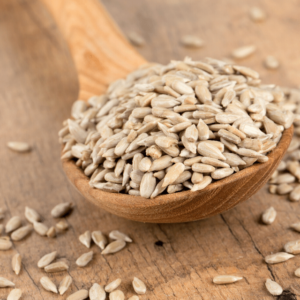
Vitamin e protects our white blood cells and our immune system. it also can protect our lungs because it protects the blood cells from oxidation. Since we are prone to lots of oxygen from breathing, we are more prone to damage. Vitamin e is critical for the development and function of our body. It can also help us absorb vitamin A.
A lack of vitamin e can cause a disruption to the red blood cells or anemia. This can also impair the immune system.
EXAMPLES OF VITAMIN E:
- Wheat germ oil (20mg)
- Sunflower seeds (7.4mg)
- Almonds (6.8mg)
- Hazelnuts (4.3mg)
- Peanut butter (2.9mg)
Get a full list here: NIH: National Institute of Health. (n.d.). Office of Dietary Supplements – Vitamin E. Retrieved from https://ods.od.nih.gov/factsheets/VitaminE-HealthProfessional/
VITAMIN C
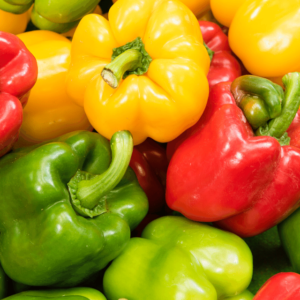
Vitamin c is so important for immune health and staying healthy. If you didn’t know, it also helps with the production of collagen for our skin. If you have poor skin health, wrinkles etc, a vitamin c serum may be applied. Vitamin c is crucial for the tissues in our skin. This is how scurvy can happen when you don’t get enough vitamin c. it can also help regulate mod and synthesize hormones in the bod. It helps vitamin e after vitamin e has been used up to help with free radicals.
RDA for adult women for vitamin c is at least 75mg and for men it is 90mg.
EXAMPLES OF VITAMIN C:
Food is the most important way to get Vitamin C because many vitamins and supplements contain too much and can be harmful to the body. If you get a healthy diet you shouldn’t have to worry about mega-dosing with supplements.
See the full list from the NIH here.
- Red peppers 95mg
- Orange 70mg
- Kiwi 64mg
- Broccoli 39mg
- Cauliflower 26mg
Find more information from the Institute of Health here. NIH. (n.d.). Office of Dietary Supplements – Vitamin C. Retrieved from https://ods.od.nih.gov/factsheets/VitaminC-HealthProfessional/
SELENIUM
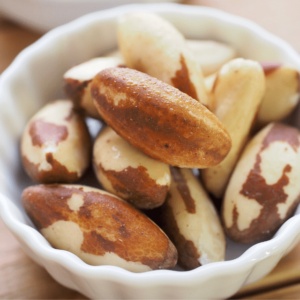
Another antioxidant mineral, selenium is found in amino acids. This is also needed for thyroid hormones and helps with the immune function. This is mainly found in animal products but brazil nuts pack a punch for the amount of selenium in a serving. You can suffer from poor immune health if you do not get enough selenium in your diet. Your doctor will be able to tell you these things, however.
The RDA for men and women is 55mcg.
EXAMPLES OF SELENIUM:
See the full list on the NIH’s website.
- Brazil nuts (522mcg in 6 nuts!)
- Tuna(92mcg)
- Halibut (47mcg)
- Chicken (22mcg)
- Whole wheat bread (13mcg)
Find out more here: NIH. (n.d.). Office of Dietary Supplements – Selenium. Retrieved from https://ods.od.nih.gov/factsheets/Selenium-HealthProfessional/
Manganese, Copper, Iron, and Zinc
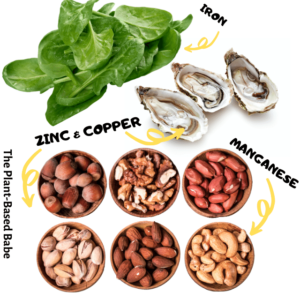
These all help with the antioxidant role that is essential for many enzyme functions. They all have to do with the healthy production of blood cells and metabolizing carbohydrates effectively. Iron, manganese, copper, iron, and zinc are all very complex nutrients and I will encourage you to learn more from the NIH: National Institute of Health where they explain all the facts consumers need to know about nutrients from foods. They will be able to explain more about these concepts if you are interested in learning more.
Here is a quick link to these guides. You can also type in the search bar about a nutrient or vitamin you want to learn more about. Make sure you chose the consumer version because its way easier to understand.
NIH Fact Sheet for Consumers
These are crucial for proper immune health and protecting our bodies daily. Check out more information at NIH if you have more questions!
STAY HEALTHY!!
XOXO
DACIA
1 Chronicles 16:11
“Seek the LORD and his strength; seek his presence continually!”
